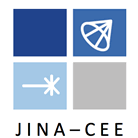History was made with the first discovery of a binary neutron star merger (BNSM) event by LIGO/Virgo, GW170817. Observations in the visible and infrared are most convincingly interpreted as an r-process kilonova: an electromagnetic counterpart to the merger event powered by the radioactive decay of some hundredths of a solar mass of newly-produced heavy nuclei.
However, it is not yet known if BNSMs occur with sufficient frequency, produce sufficient amounts of r-process-element material, and if they are capable of producing the full mass range of r-process elements to be the sole source of the r-process elements in the universe, or whether additional sites are required.
To further advance our understanding of the r-process, the R-Process Alliance (RPA) collaboration was established, which will combine observations, theory and modeling, and experiments from multiple fields to investigate different aspects of the r-process. The first goal in this effort is to carry out an extensive search for r-process-enhanced stars in our Galaxy, and thus compile a much larger “statistical”sample of such stars that is sufficiently bright to facilitate abundance determinations for a large number of neutron-capture elements.
The goal of this 3-day workshop is to launch the data interpretation phase of the RPA with selected experts in observational, theoretical and experimental r-process work.
The workshop aims to identify, in collaboration with r-process theorists and experimentalists, concrete projects for data interpretation to pursue over the next few years. E.g., Identifying the type of data and numbers of the r-process stars that the observers should provide; Prioritization for portrait spectra (S/N∼100) observations (such as for actinide boost stars); Correlating yields from different sites of the r-process to the abundances of r-process elements in r-process enhanced stars; Discussing how the data of r-process stars can constrain environment and/or r-process sites via chemical evolution.

